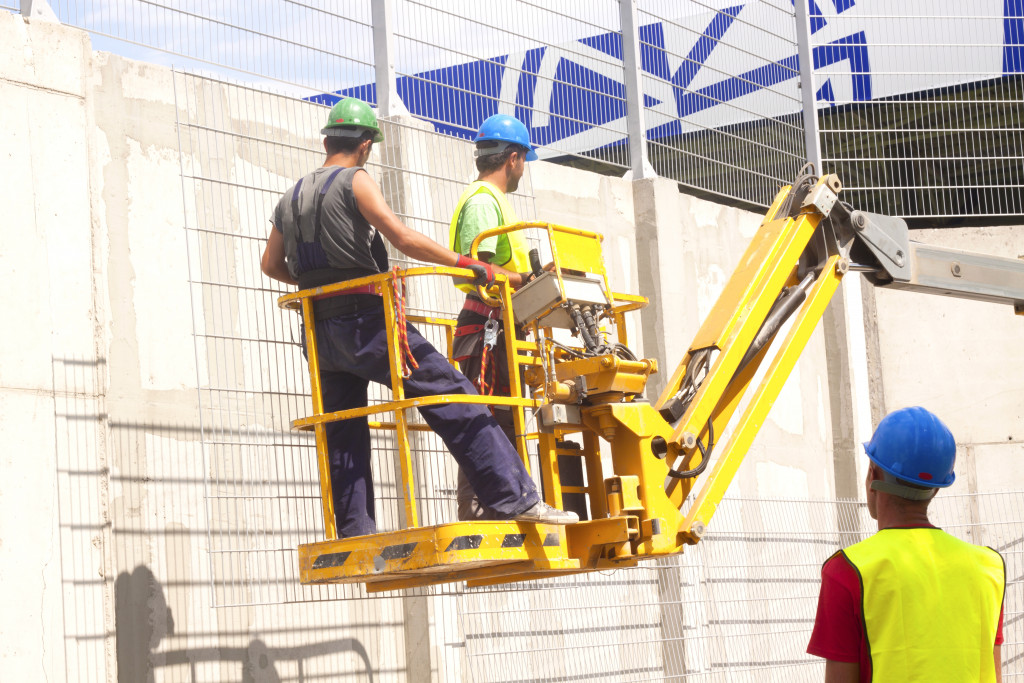- Research the local construction market to identify gaps and determine where demand is highest.
- Ensure you comply with all legal and regulatory frameworks, such as acquiring the necessary licenses and adhering to safety standards.
- Develop a comprehensive business plan that outlines your business objectives, financial projections, marketing strategies, and roadmap for scaling operations.
- Hire skilled workers, project managers, and administrative staff to ensure projects run smoothly.
- Invest in essential construction equipment, such as excavators, loaders, concrete mixers, and cranes, to improve efficiency and reduce project timelines.
Starting a construction business can be lucrative in today’s dynamic entrepreneurial landscape. As urban development and infrastructure projects rise, so does the demand for construction services. However, diving into the construction industry requires meticulous planning, understanding market needs, and acquiring essential equipment. If you’re contemplating a construction venture, the following sections will provide valuable insights to ensure your business stands tall amid competition.
1. Understand the Market and Define Your Niche
Entering the construction world, you must comprehend the nuances of the market.
Research is the foundation of any successful business venture. Before laying the first brick, study your local construction market, identify gaps, and determine where demand is highest. Are residential properties booming? Or is there a surge in commercial projects? By pinpointing a specific niche — be it home renovations, commercial constructions, or infrastructure projects — you can cater your services to a targeted audience, ensuring better project acquisition and client satisfaction.
Moreover, understanding your niche helps streamline business operations. When you know your specialty, you can allocate resources, hire specialized personnel, and market your services more effectively to a discerning clientele.
2. Ensure Legal and Regulatory Compliance

Building structures isn’t just about bricks and mortar but building trust.
Ensuring your construction business complies with all legal and regulatory frameworks is non-negotiable. This includes acquiring the necessary licenses, adhering to safety standards, and understanding construction codes specific to your region. Consulting with a legal expert can help you navigate these waters, ensuring you avoid potential pitfalls.
Furthermore, having all required permits safeguards your business from legal repercussions and instills client trust. When clients know they’re dealing with a legitimate and compliant business, they’re more likely to award you projects and refer your services to others.
3. Develop a Comprehensive Business Plan
Blueprints aren’t just for buildings; they’re for businesses too.
A detailed business plan is critical when starting your construction venture. This plan should outline your business objectives, financial projections, marketing strategies, and a roadmap for scaling operations. It acts as a guiding document, helping you stay on course, allocate resources judiciously, and make informed decisions.
Moreover, a well-structured business plan can be instrumental when seeking financing. Banks and investors are more likely to back a business with a clear vision, actionable strategies, and a sound financial plan.
4. Build a Competent Team and Network
Behind every towering skyscraper is a team of dedicated professionals.
A construction business is only as strong as its team. Hiring skilled workers, project managers, and administrative staff ensures projects run smoothly and clients remain satisfied. But beyond just hiring, invest in training. As construction techniques and tools evolve, continuous learning becomes imperative to maintain a competitive edge.
Additionally, networking is crucial. Forge relationships with local suppliers, realtors, and other construction businesses. By cultivating a strong professional network, you gain access to better supply deals, partnership opportunities, and client referrals.
5. Invest in the Right Equipment
Equipment is the lifeblood of a construction business. Without the right tools, even the most skilled team can falter.
For any construction company, especially startups, capital is precious. Therefore, determining which equipment to buy versus rent can have significant financial implications. Owning equipment might be beneficial if you’re involved in large-scale projects or those requiring specialized machinery.
Here are some equipment you should invest in:
Excavators

Excavators are essential machinery in any construction site. They are versatile machines that can perform various tasks, including digging, lifting heavy materials, demolishing buildings, or mining. These machines make it allow construction companies to take on large-scale projects effectively. For startups, leasing might be more cost-effective until the cash flow becomes steady.
Loaders
Loaders are another crucial piece of equipment for construction businesses. Their primary function is to load materials into other machinery or onto trucks. They can also be used for pushing, digging, and grading soil. Investing in a high-quality loader can significantly speed up construction processes, making it an invaluable asset for any construction company.
Concrete Mixers
Concrete mixers play a vital role in ensuring the consistency and quality of the concrete used in construction. These machines mix cement, aggregate, and water to produce concrete. They are especially important for businesses involved in building construction, as they help maintain the integrity and durability of the structure.
Cranes
Cranes are essential when constructing tall buildings. They help lift and move materials to various heights quickly and safely. Investing in reliable crane parts for sale can significantly reduce project timelines, making them an invaluable addition to any construction business. Cranes can also maneuver heavy materials such as steel, concrete, and brick around the construction site.
In Summary
Embarking on a journey in the construction industry is both challenging and rewarding. It demands dedication, strategic planning, and an unwavering commitment to quality and integrity. Understanding your market, staying compliant, drafting a solid business plan, building a robust team, and investing in essential equipment pave the way for a construction business that survives and thrives. Whether you’re constructing homes, offices, or skyscrapers, these foundational tips will ensure your business remains rock solid.







